If you keep seeing a lot of annoying ads like pop-ups or banners from Lps.plarium.com when you’re browsing the internet, it’s likely that your computer has caught a type of unwanted software called adware. Lps.plarium.com is a tricky website that sends you to other web pages you probably don’t want to visit.
The main goal of Lps.plarium.com is to make money by sending people to these ad-filled websites. The more people visit these sites, the more money the creators of Lps.plarium.com make.
It’s important to remember that adware can be risky. It can redirect your browser to sites that might try to download harmful software onto your computer. So, I strongly recommend checking your computer for any kind of malware, including adware, because Lps.plarium.com is known to be linked with these dangerous programs. Adware can cause many online problems, even serious ones like identity theft.
To keep your online activities safe, dealing with this adware issue quickly is important. Using a trusted antivirus or anti-malware program to scan and eliminate any bad software on your computer is a good idea. Also, being careful where you browse, like avoiding sketchy websites and not clicking on unknown links or pop-ups, can help stop future adware infections and other online issues.
If you suspect adware has been installed on your computer, you often recognize the following symptoms:
- Unknown popup(s) from an unknown website. When you see unfamiliar popups, especially when using the browser, this is a sign that adware has been installed on your computer.
- The homepage or new tab has been changed without your permission. If a new home page is suddenly set in your default browser, this is also a sign of adware or possibly malware.
- Unknown browser redirects. Check your computer for adware if the browser suddenly opens new windows or tabs when you click a hyperlink.
Lps.plarium.com domain WHOIS record:
No match for "LPS.PLARIUM.COM".
>>> Last update of whois database: 2025-08-01T11:35:35Z <<<
NOTICE: The expiration date displayed in this record is the date the
registrar's sponsorship of the domain name registration in the registry is
currently set to expire. This date does not necessarily reflect the expiration
date of the domain name registrant's agreement with the sponsoring
registrar. Users may consult the sponsoring registrar's Whois database to
view the registrar's reported date of expiration for this registration.
TERMS OF USE: You are not authorized to access or query our Whois
database through the use of electronic processes that are high-volume and
automated except as reasonably necessary to register domain names or
modify existing registrations; the Data in VeriSign Global Registry
Services' ("VeriSign") Whois database is provided by VeriSign for
information purposes only, and to assist persons in obtaining information
about or related to a domain name registration record. VeriSign does not
guarantee its accuracy. By submitting a Whois query, you agree to abide
by the following terms of use: You agree that you may use this Data only
for lawful purposes and that under no circumstances will you use this Data
to: (1) allow, enable, or otherwise support the transmission of mass
unsolicited, commercial advertising or solicitations via e-mail, telephone,
or facsimile; or (2) enable high volume, automated, electronic processes
that apply to VeriSign (or its computer systems). The compilation,
repackaging, dissemination or other use of this Data is expressly
prohibited without the prior written consent of VeriSign. You agree not to
use electronic processes that are automated and high-volume to access or
query the Whois database except as reasonably necessary to register
domain names or modify existing registrations. VeriSign reserves the right
to restrict your access to the Whois database in its sole discretion to ensure
operational stability. VeriSign may restrict or terminate your access to the
Whois database for failure to abide by these terms of use. VeriSign
reserves the right to modify these terms at any time.
The Registry database contains ONLY .COM, .NET, .EDU domains and
Registrars.
Lps.plarium.com domain age:
We were unable to find the creation date for this domain
How to remove Lps.plarium.com
Within this comprehensive guide, I will provide you with a series of steps to thoroughly examine your computer for adware, potentially unwanted programs, and other forms of malware.
This step-by-step walkthrough will begin by inspecting your browser settings and thoroughly examining the installed applications in Windows 11 or 10. Furthermore, I will suggest various tools that automatically detect and eliminate malware from your system.
Lastly, I will recommend a browser extension as a proactive measure to prevent adware infections and safeguard your PC from future encounters with bothersome pop-ups, such as Lps.plarium.com. By following these instructions diligently, you will be equipped to detect and remove any existing malware while implementing preventative measures to mitigate future adware-related inconveniences.
Step 1: Remove permission for Lps.plarium.com to send push notifications using the browser
First, we will remove the permission for Lps.plarium.com from the browser. This will prevent Lps.plarium.com from sending notifications through the browser any longer. Once you have performed this, the notifications will stop, and you will no longer see unwanted advertisements through the browser.
Follow the instructions for the browser you have set as your default browser. Make sure you remove the permission for Lps.plarium.com from the browser settings. To do so, see the steps below for the corresponding browser.
 Remove Lps.plarium.com from Google Chrome
Remove Lps.plarium.com from Google Chrome
- Open Google Chrome.
- In the top-right corner, expand the Chrome menu.
- In the Google Chrome menu, click on Settings.
- At the Privacy and Security section, click on Site settings.
- Next, click the Notifications settings.
- Remove Lps.plarium.com by clicking the three dots on the right next to the Lps.plarium.com URL and Remove.
→ Follow the next step to remove the left-overs: Malwarebytes.
 Remove Lps.plarium.com from the Android
Remove Lps.plarium.com from the Android
- Open Google Chrome
- In the top-right corner, find the Chrome menu.
- In the menu, tap Settings, and scroll down to Advanced.
- In the Site Settings section, tap the Notifications settings, find the Lps.plarium.com domain, and tap on it.
- Tap the Clean & Reset button and confirm.
→ See the next step: Malwarebytes.
 Remove Lps.plarium.com from Firefox
Remove Lps.plarium.com from Firefox
- Open Firefox
- In the top-right corner, click the Firefox menu (three horizontal stripes).
- In the menu, click on Options.
- In the list on the left, click on Privacy & Security.
- Scroll down to Permissions and then to Settings next to Notifications.
- Select the Lps.plarium.com URL from the list, and change the status to Block, save Firefox changes.
→ See the next step: Malwarebytes.
 Remove Lps.plarium.com from Edge
Remove Lps.plarium.com from Edge
- Open Microsoft Edge.
- Click on the three dots in the top right corner to expand the Edge menu.
- Scroll down to Settings.
- In the left menu, click on Site permissions.
- Click on Notifications.
- Click on the three dots on the right of the Lps.plarium.com domain and click Remove.
→ See the next step: Malwarebytes.
 Remove Lps.plarium.com from Safari on Mac
Remove Lps.plarium.com from Safari on Mac
- Open Safari. In the top left corner, click on Safari.
- Go to Preferences in the Safari menu and open the Websites tab.
- In the left menu, click on Notifications
- Find the Lps.plarium.com domain and select it, and click the Deny button.
→ See the next step: Malwarebytes.
Step 2: Remove adware browser extensions
 Google Chrome
Google Chrome
- Open Google Chrome.
- type: chrome://extensions/ in the address bar.
- Search for any adware browser extensions and click the “Remove” button.
It is important to your check every extension installed. If you do not know or do not trust a specific extension, remove or disable it.
→ Follow the next step to remove the left-overs: Malwarebytes.
 Firefox
Firefox
- Open Firefox browser.
- type: about:addons in the address bar.
- Search for any adware browser add-ons and click the “Uninstall” button.
It is important to your check every addon installed. If you do not know or do not trust a specific addon, remove or disable it.
→ Follow the next step to remove the left-overs: Malwarebytes.
 Microsoft Edge
Microsoft Edge
- Open the Microsoft Edge browser.
- type: edge://extensions/ in the address bar.
- Search for any adware browser extensions and click the “Remove” button.
It is important to your check every extension installed. If you do not know or do not trust a specific extension, remove or disable it.
→ Follow the next step to remove the left-overs: Malwarebytes.
 Safari
Safari
- Open Safari.
- In the top left corner, click on the Safari menu.
- In the Safari menu, click on Preferences.
- Click on the Extensions tab.
- Click on the unwanted extension you want to be removed, then Uninstall.
It is important to your check every extension installed. If you do not know or do not trust a specific extension, uninstall the extension.
→ Follow the next step to remove the left-overs: Malwarebytes.
Step 3: Uninstall adware software
In this second step, we will check your computer for adware software. In many cases, adware is installed by you as a user yourself. This is because adware is bundled with other software you can download for free from the Internet.
Adware is then offered as a helpful tool or an “offering” during installation. If you do not pay attention and quickly click through the installation process, you will install adware on your computer. Thus, this is done misleadingly. If you want to avoid this, you can use Unchecky software. Using the steps below, check for adware installed on your computer and remove it.
Windows 11
- Click on “Start.”
- Click on “Settings.”
- Click on “Apps.”
- Lastly, click on “Installed apps.”
- Search for any unknown or unused software in the list of recently installed apps.
- On the right-click on the three dots.
- In the menu, click on “Uninstall.”
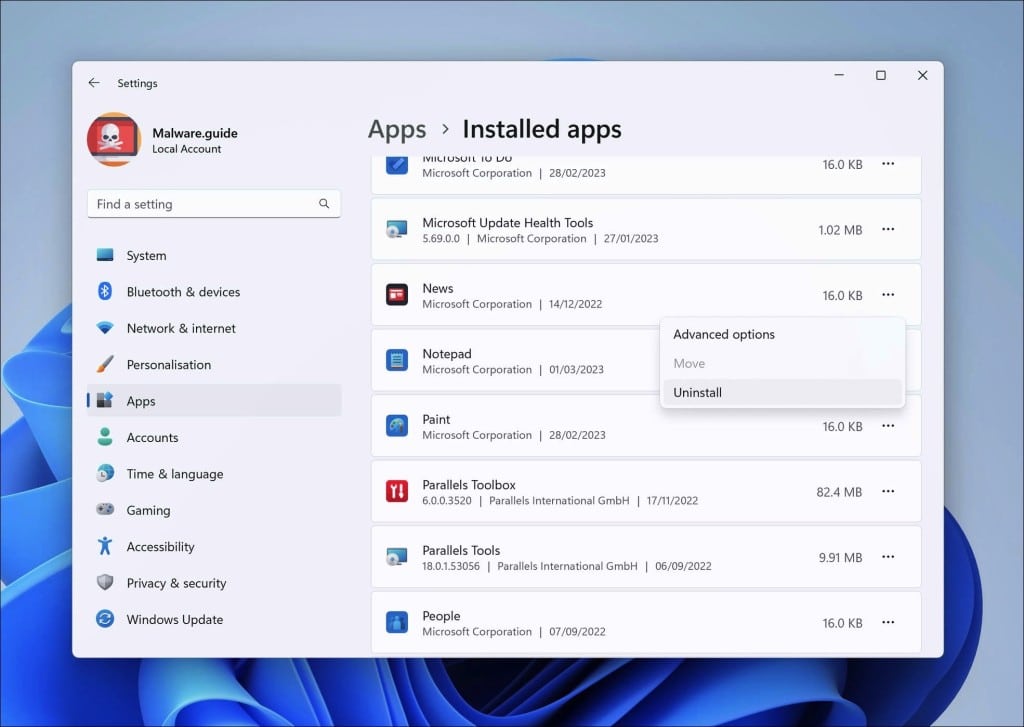
Windows 10
- Click on “Start.”
- Click on “Settings.”
- Click on “Apps.”
- In the list of apps, search for any unknown or unused software.
- Click on the app.
- Lastly, click on the “Uninstall” button.
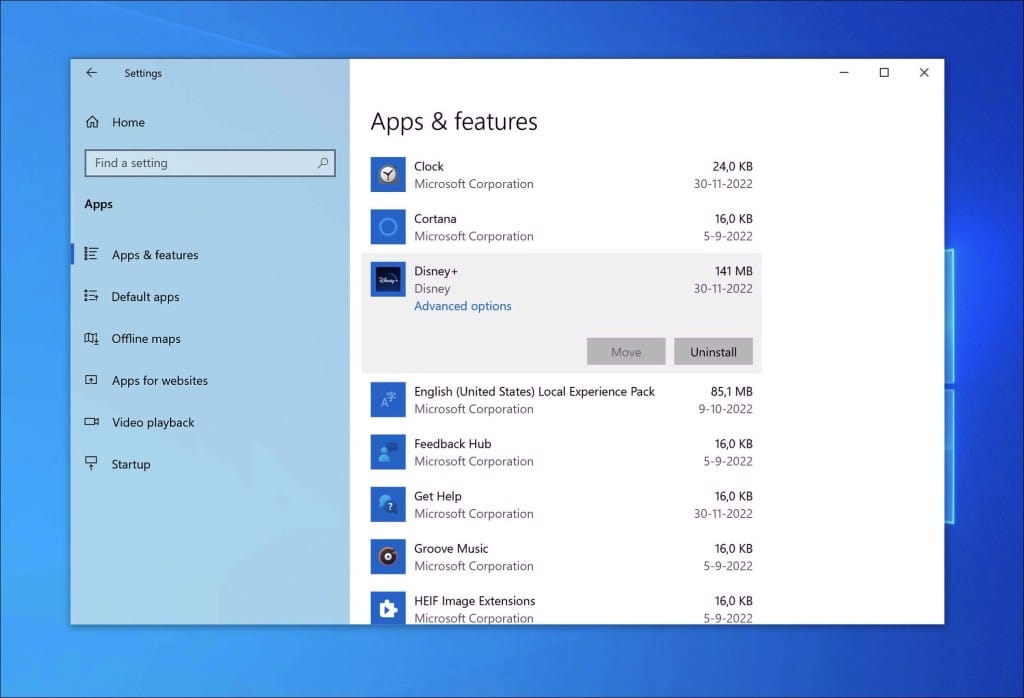
Step 4: Scan your PC for malware
Now that you have uninstalled adware apps, I advise you to check the computer for any other malware for free.
It is not recommended to remove malware manually because it can be difficult for non-technical people to identify and remove all the traces of malware. Manually removing malware involves finding and deleting files, registry entries, and other often hidden details. It can damage your computer or leave it vulnerable to further attacks if not done correctly. So, please install and run the malware removal software, which you can find in this step.
Malwarebytes
Use Malwarebytes to detect adware such as Lps.plarium.com and other malware on your computer. The advantage of Malwarebytes is that it is free to detect and remove malware. Malwarebytes is capable of removing different types of malware. In addition to removal, it also offers protection against malware. I recommend using Malwarebytes if only to have checked your computer for malware once.
- Download Malwarebytes
- Install Malwarebytes, and follow the on-screen instructions.
- Click Scan to initiate a malware scan on your PC.
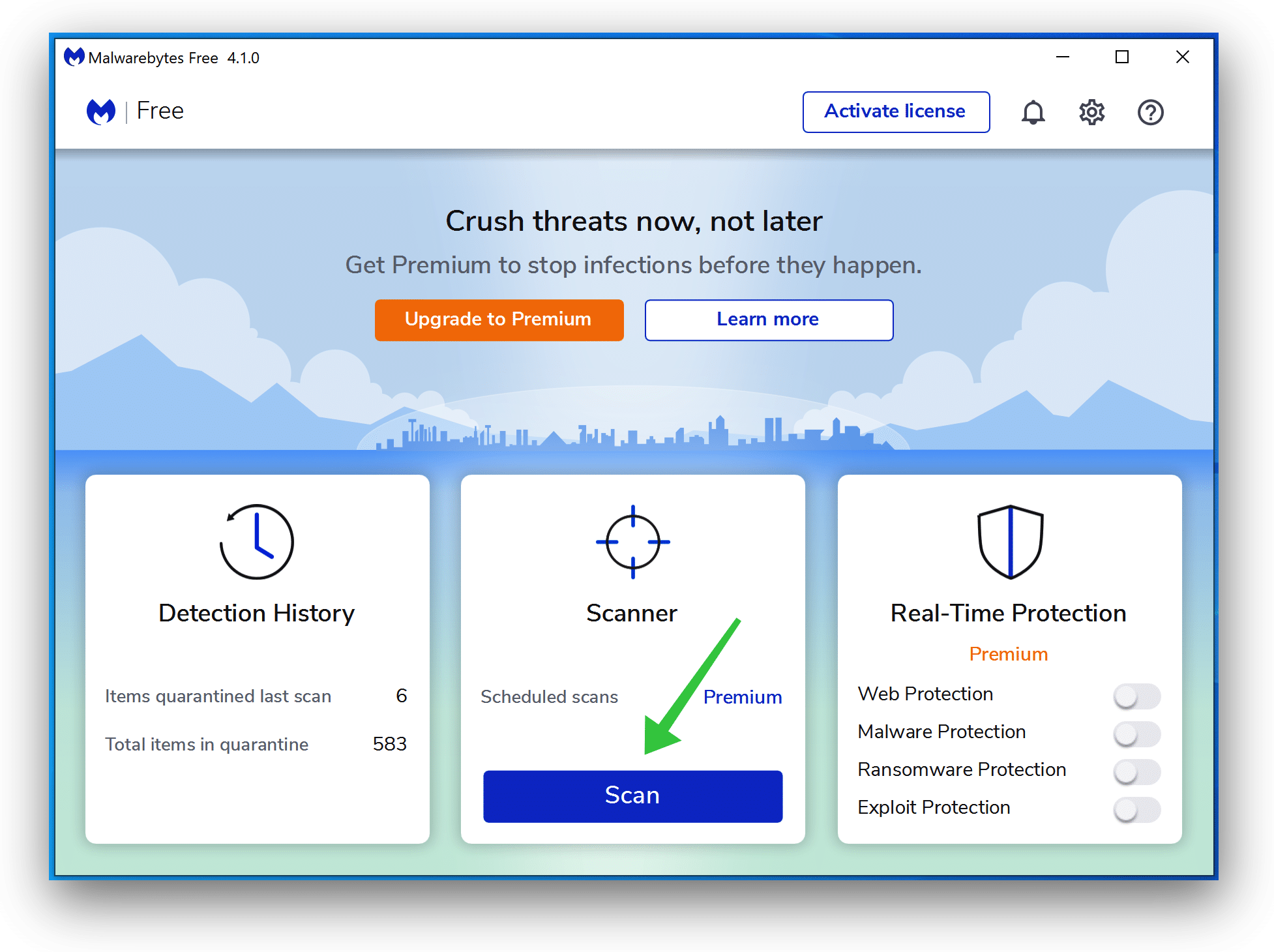
- Wait for the Malwarebytes scan to finish.
- Once completed, review the malware detections.
- Click Quarantine to continue.
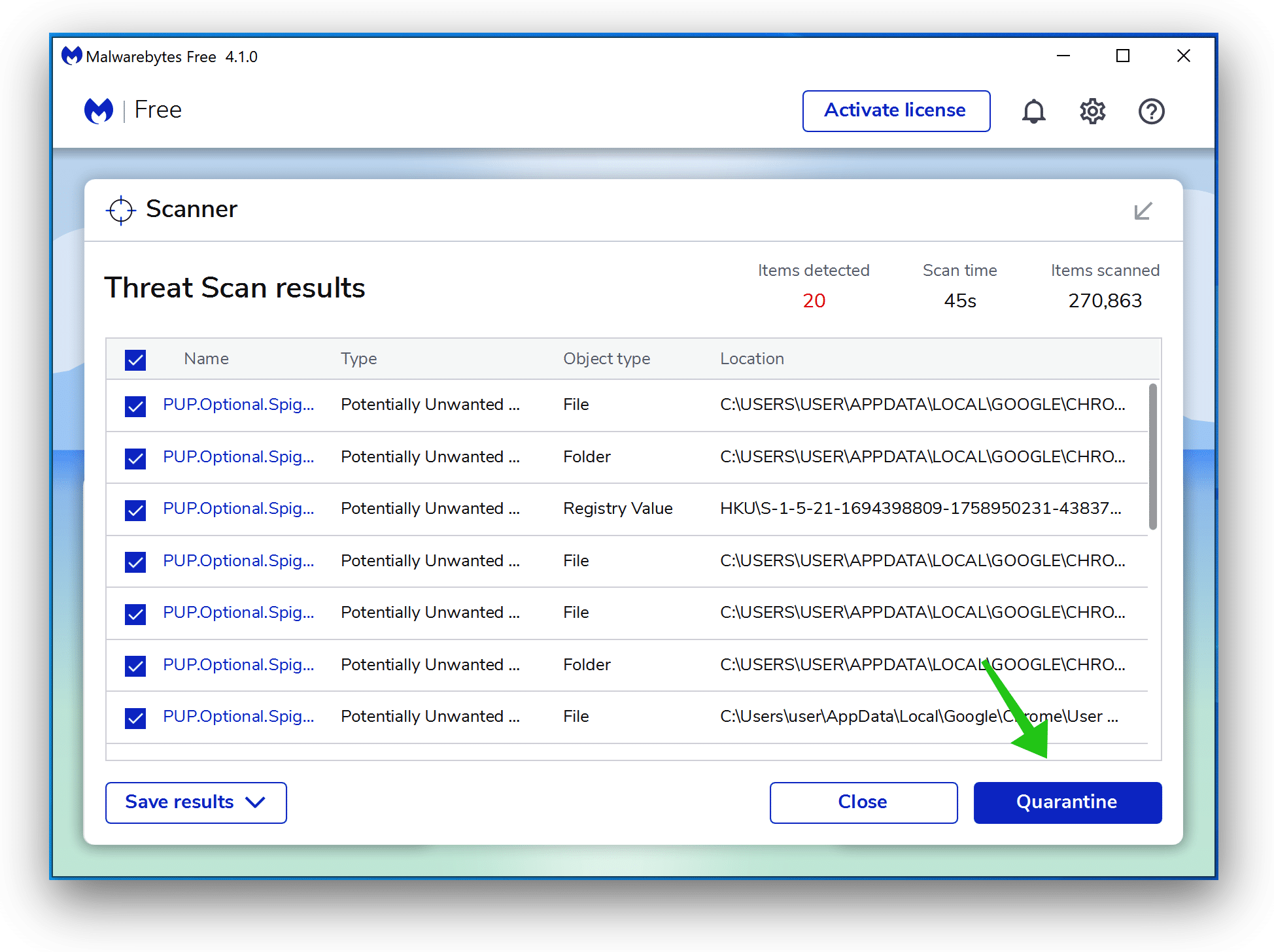
- Reboot Windows after all the malware detections are moved to quarantine.
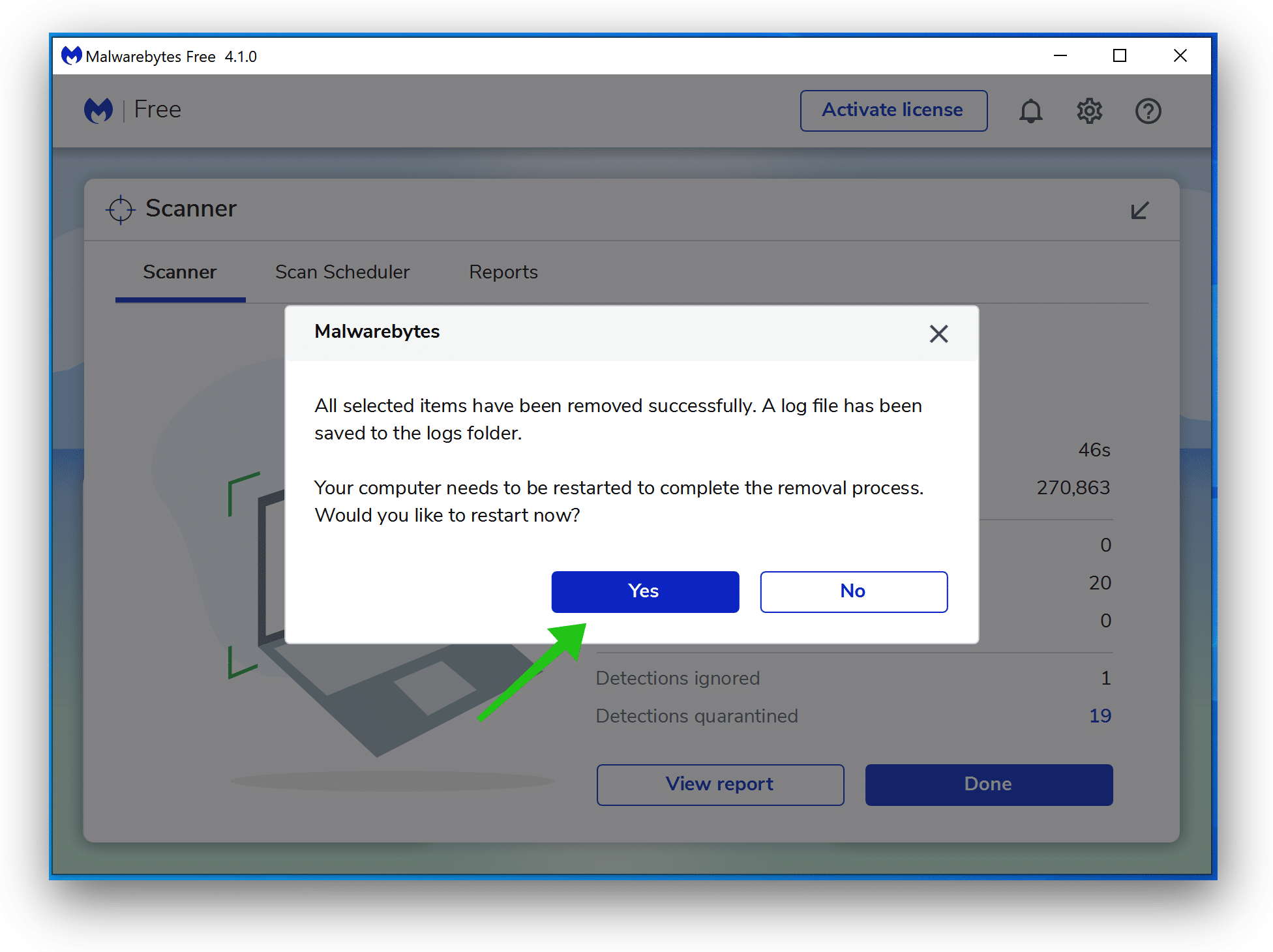
Combo Cleaner
Combo Cleaner is a cleaning and antivirus program for Mac, PC, and Android devices. It is equipped with features to protect devices from various types of malware, including spyware, trojans, ransomware, and adware. The software includes tools for on-demand scans to remove and prevent malware, adware, and ransomware infections. It also offers features like a disk cleaner, big files finder (free), duplicate files finder (free), privacy scanner, and application uninstaller.
Follow the installation instructions to install the application on your device. Open Combo Cleaner after installation.
- Click the "Start scan" button to initiate a malware removal scan.
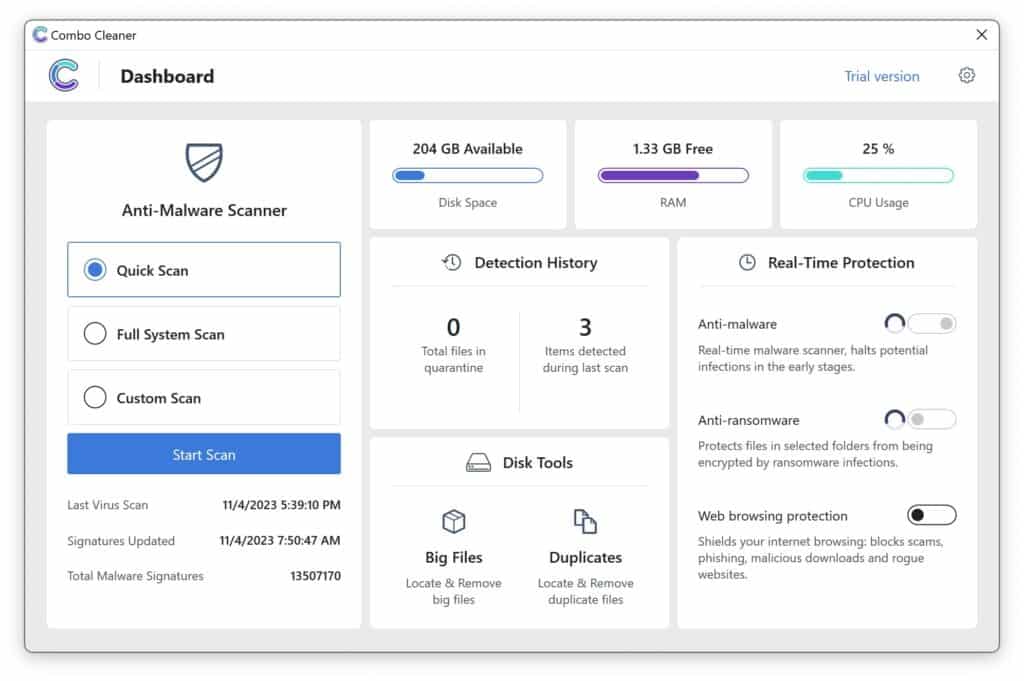
- Wait for Combo Cleaner to detect malware threats on your computer.
- When the Scan is finished, Combo Cleaner will show the found malware.
- Click "Move to Quarantine" to move the found malware to quarantine, where it can't harm your computer anymore.
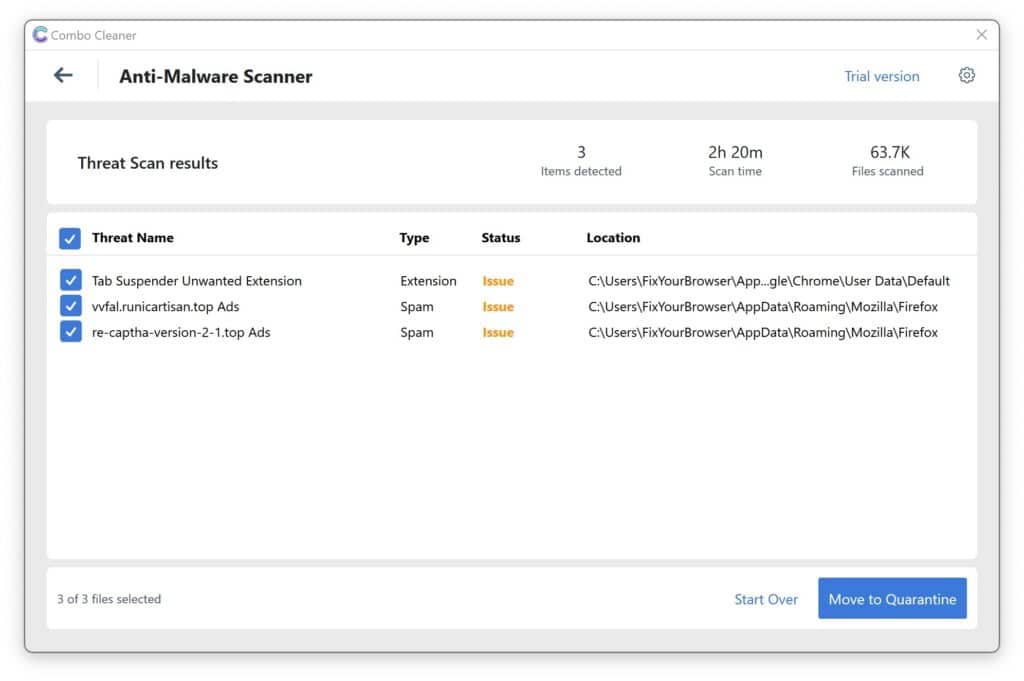
- A malware scan summary is shown to inform you about all threats found.
- Click "Done" to close the scan.
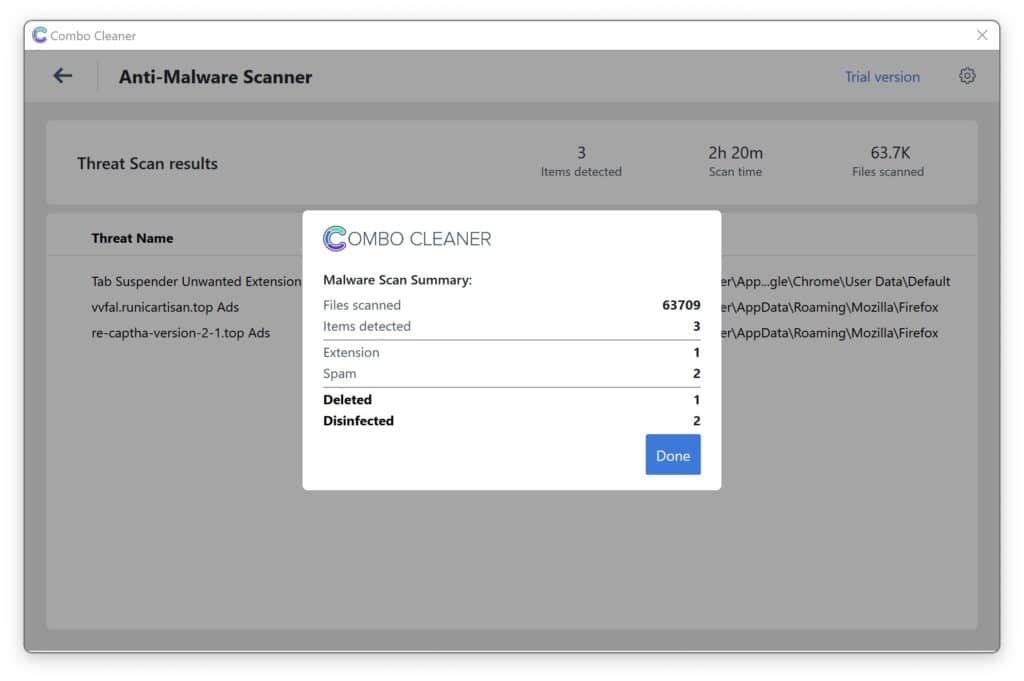
Use Combo Cleaner regularly to keep your device clean and protected. Combo Cleaner will remain active on your computer to protect your computer from future threats that try to attack your computer. If you have any questions or issues, Combo Cleaner offers a dedicated support team available 24/7.
AdwCleaner
AdwCleaner is a free utility software designed to remove adware, unwanted programs, and browser hijackers such as Lps.plarium.com from your computer. Malwarebytes develop AdwCleaner, which is easy to use, even for non-technical users.
AdwCleaner scans your computer for potentially unwanted programs (PUPs) and adware that may have been installed without your knowledge. It searches for the adware that displays pop-up ads, unwanted toolbars or extensions, and other programs that may slow down your computer or hijack your web browser. Once AdwCleaner has detected the adware and PUPs, it can remove them safely and thoroughly from your computer.
AdwCleaner removes unwanted browser extensions and resets your browser settings to their default state. This could be useful if adware hijacked or modified your browser or a potentially unwanted program.
- Download AdwCleaner
- No need to install AdwCleaner. You can run the file.
- Click “Scan now.” to initiate a scan.
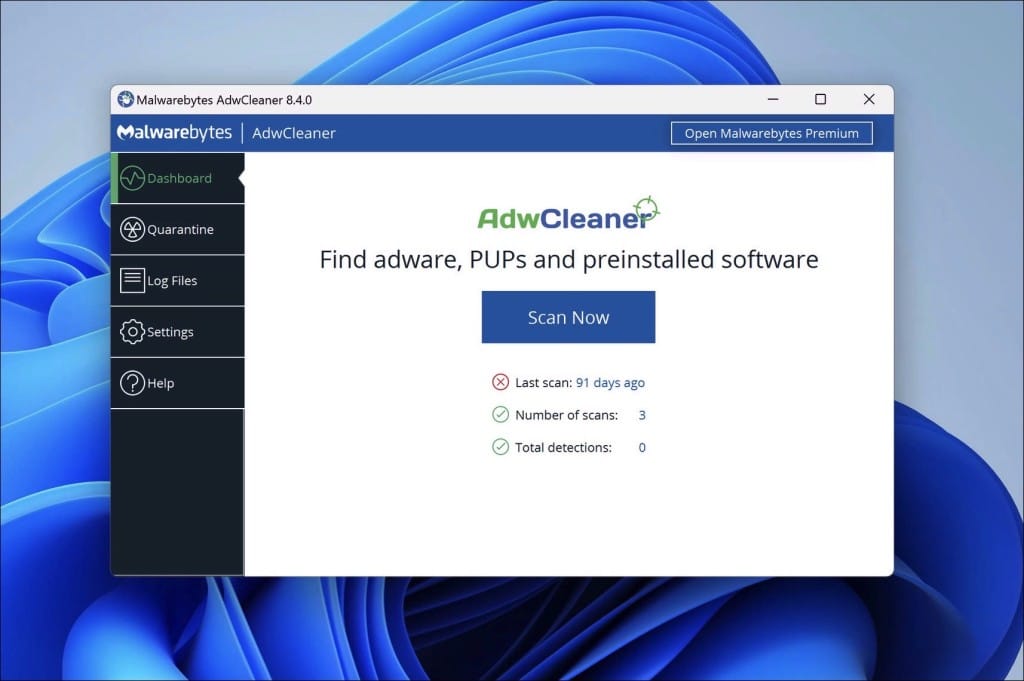
- AdwCleaner starts downloading detection updates.
- Following is a detection scan.
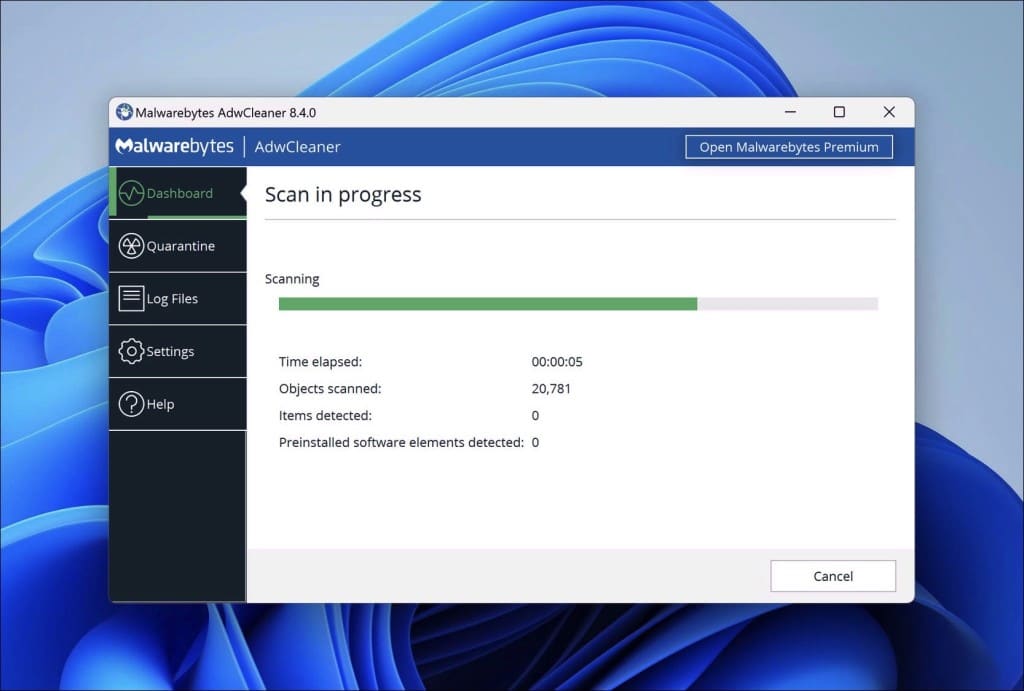
- Once the detection is finished, click on “Run Basic Repair.”
- Confirm by clicking on “Continue.”
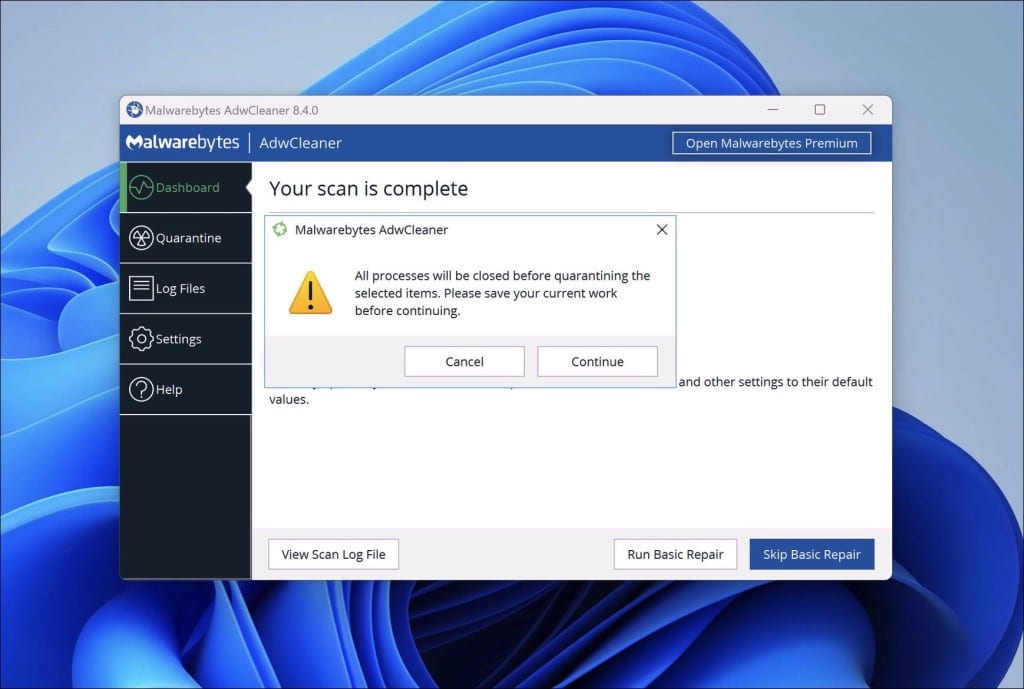
- Wait for the cleanup to complete; this won’t take long.
- When Adwcleaner is finished, click “View log file.” to review detections and cleanup processes.
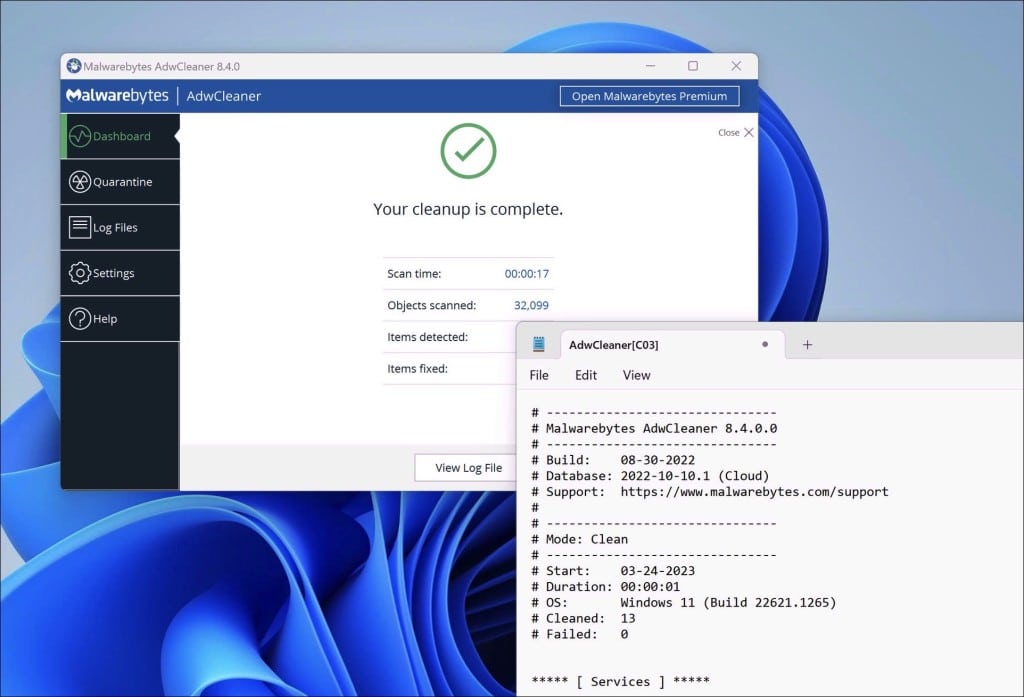
Sophos HitmanPRO
HitmanPro is a cloud scanner. This means it can detect malware by uploading it to the Sophos cloud and then detecting it there. This is a different way to detect malware than other anti-malware tools. In doing so, it provides excellent protection and, generally through the cloud, can detect malware better and faster.
Once the Lps.plarium.com pop-up is detected, HitmanPro will remove the malware responsible for this pop-up from your computer. If you continue to use HitmanPro, you will also be protected against all kinds of malware in the future.
- Download HitmanPro.
- Click the “Next” button to continue the setup.
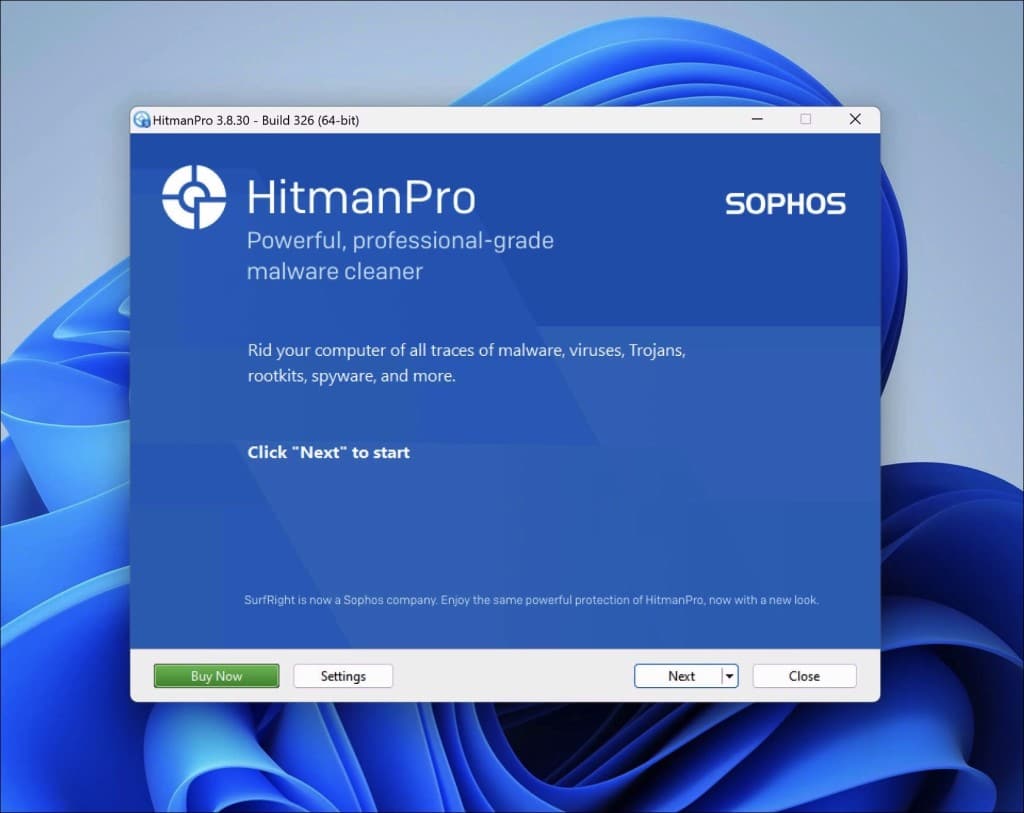
- Accept the terms and conditions to use Sophos HitmanPro.
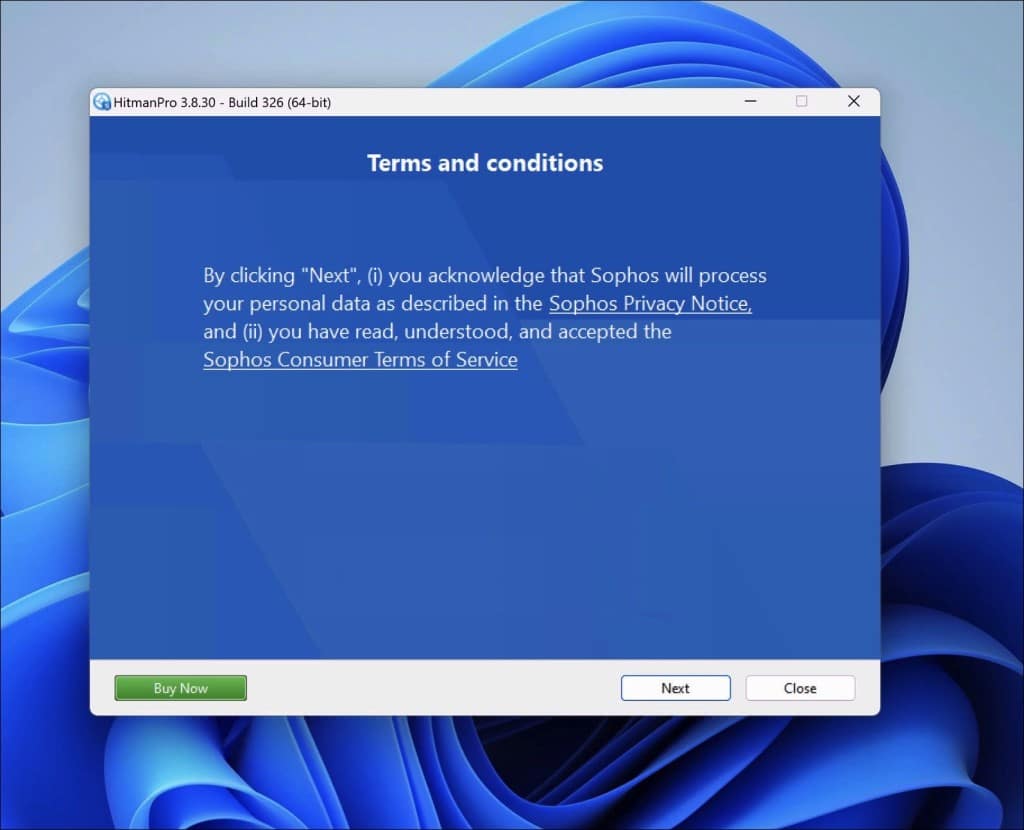
- If you want to scan your computer regularly, click “yes.” If you do not want to scan your computer more often, click “No.”
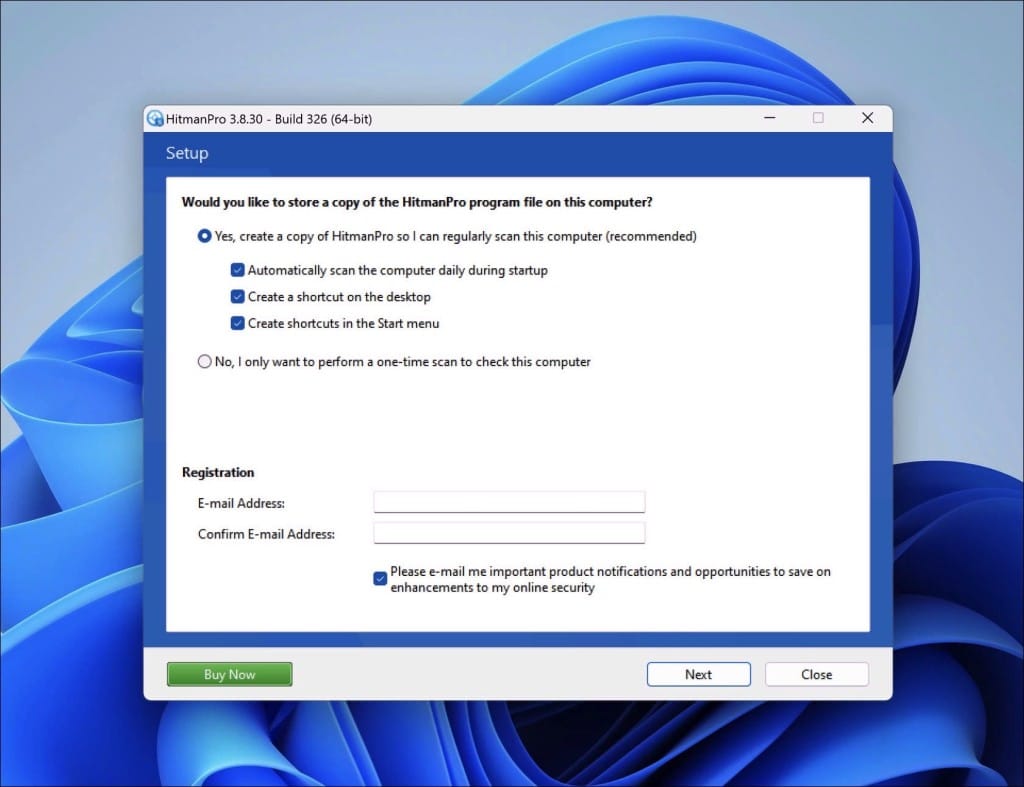
- Sophos HitmanPro will start a malware scan. Once the window turns red it indicates malware or potentially unwanted program have been found on your computer during this scan.
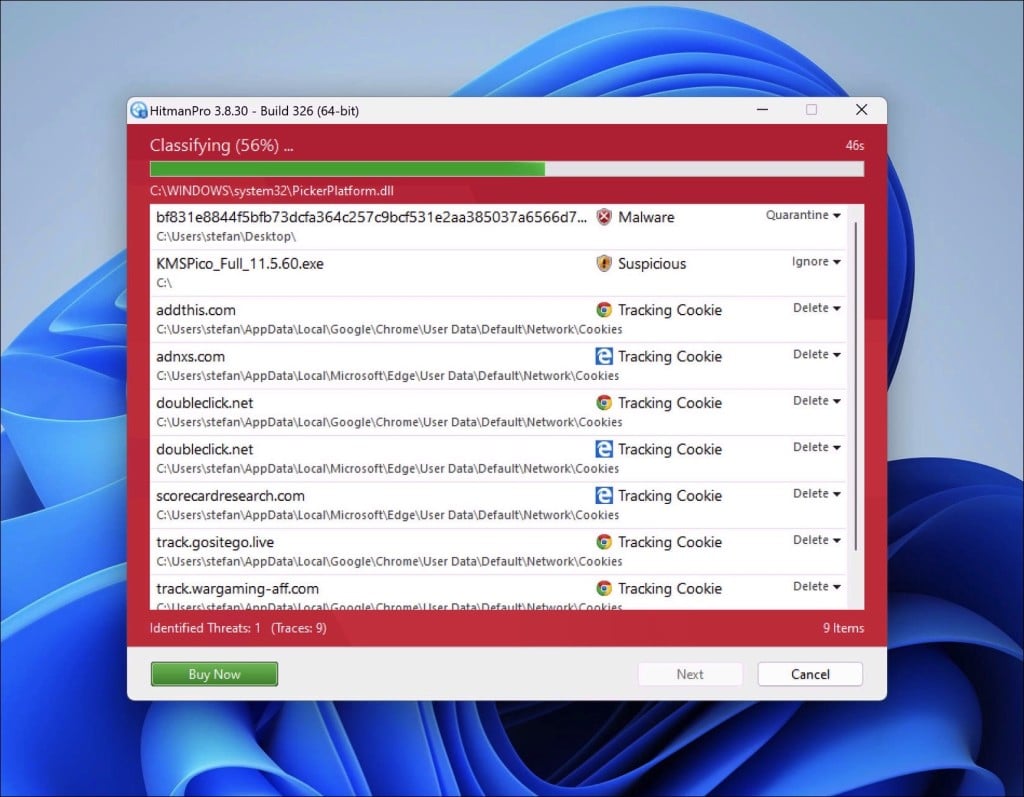
- Before removing the malware detections, you need to activate a free license.
- Click on the “Activate free license.” button.
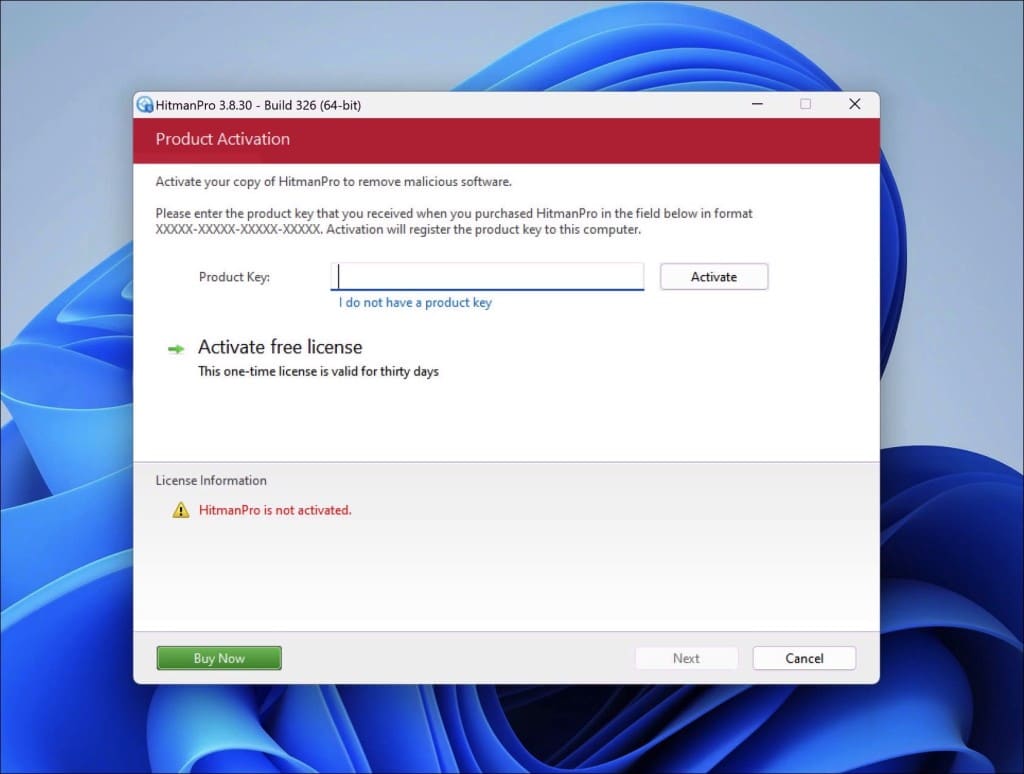
- Provide your e-mail address to activate the one-time license, valid for thirty days.
- Click on the “Activate” button to continue the removal process.
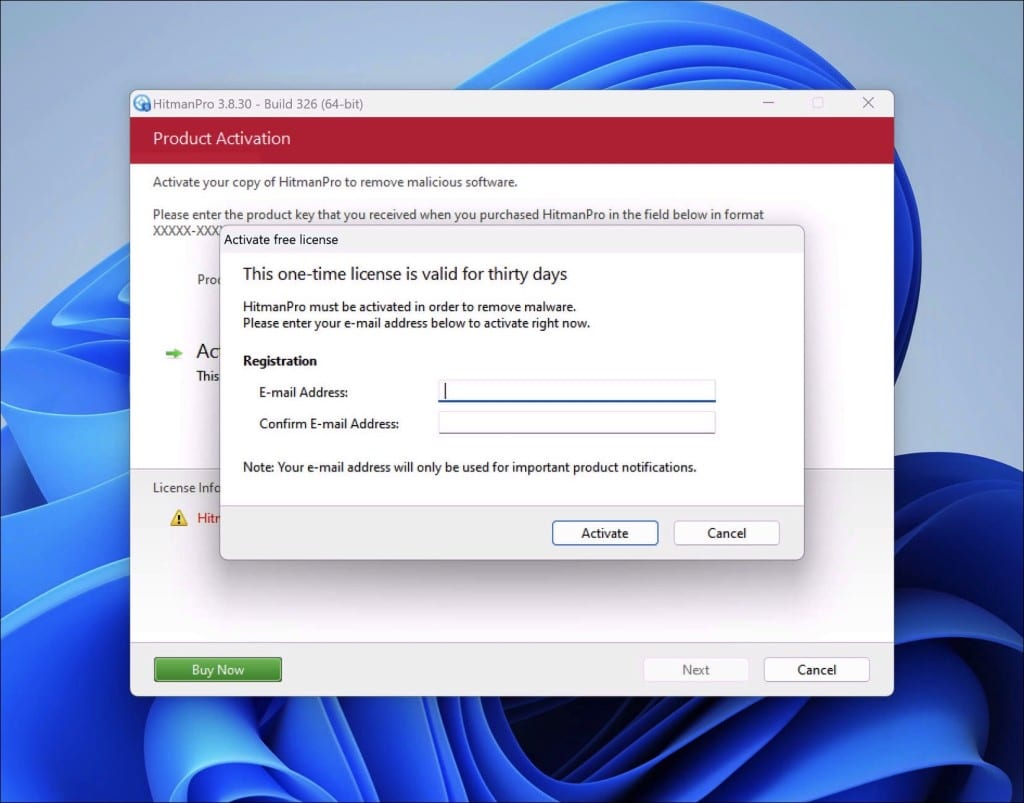
- The HitmanPro product is activated successfully.
- We can now continue with the removal process.
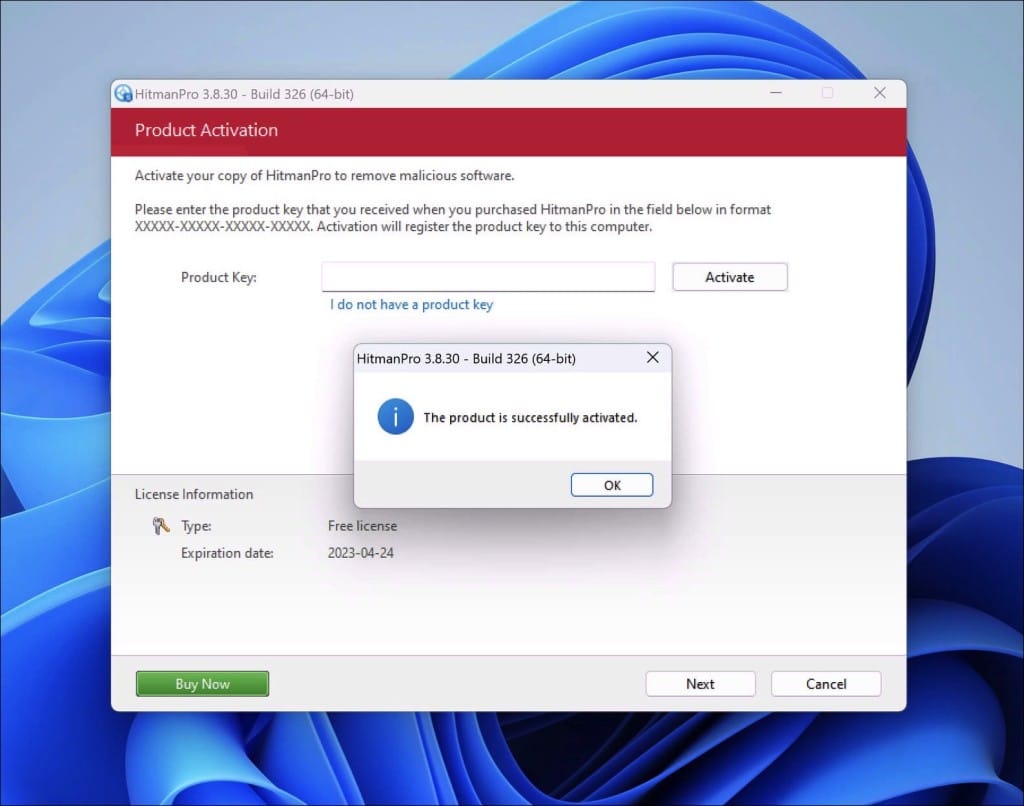
- Sophos HitmanPro will remove all detected malware from your computer. When it is done, you will see a summary of the results.
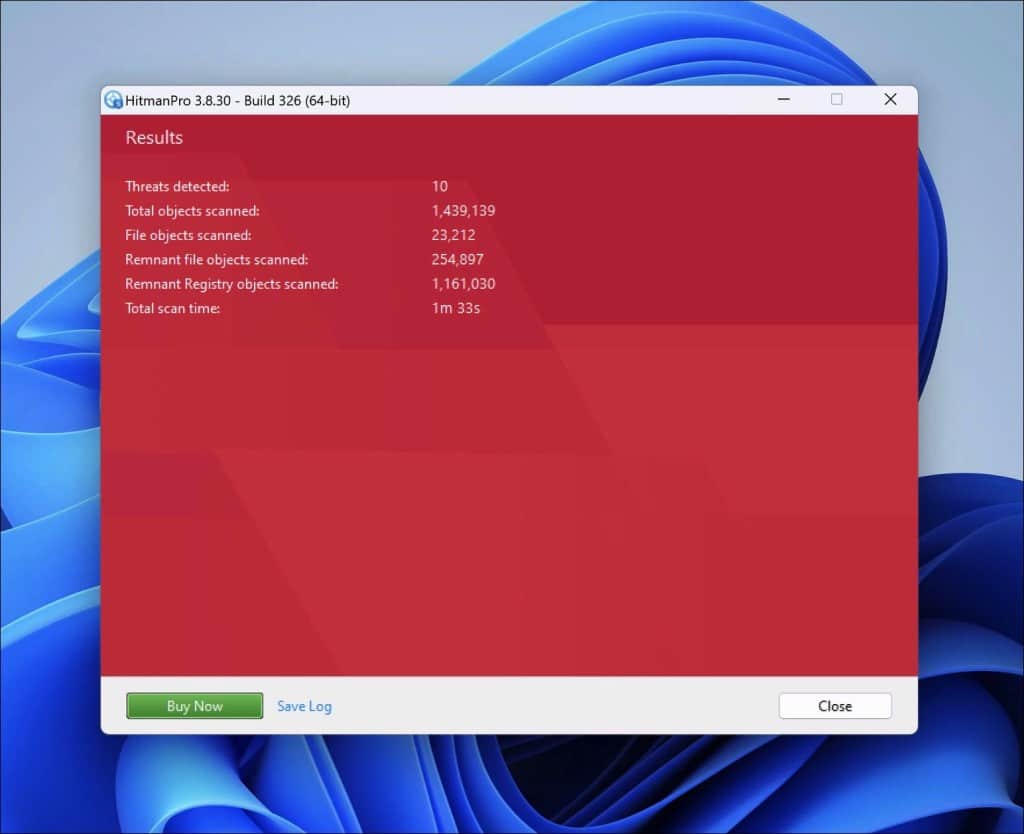
Adware removal tool by TSA
Adware removal tool by TSA is a free app that you can use to remove adware from your computer. This app can detect and remove adware. It offers other functions besides adware removal. For example, it allows you to remove browser hijackers such as Lps.plarium.com from Google Chrome, Firefox, Internet Explorer, and Microsoft Edge browser.
In addition, it removes toolbars from the browser, malicious browser extensions, and if nothing works, you can use it to reset the browser. This way, the browser is restored to default values. The adware removal tool does not require installation. It is a portable app that you can open without installation. For example, this makes running from USB or a recovery disk suitable.
Download Adware Removal tool by TSA
Once you start the app, the adware removal tool updates its adware detection definitions. Next, click the “Scan” button to start an adware scan on your computer.
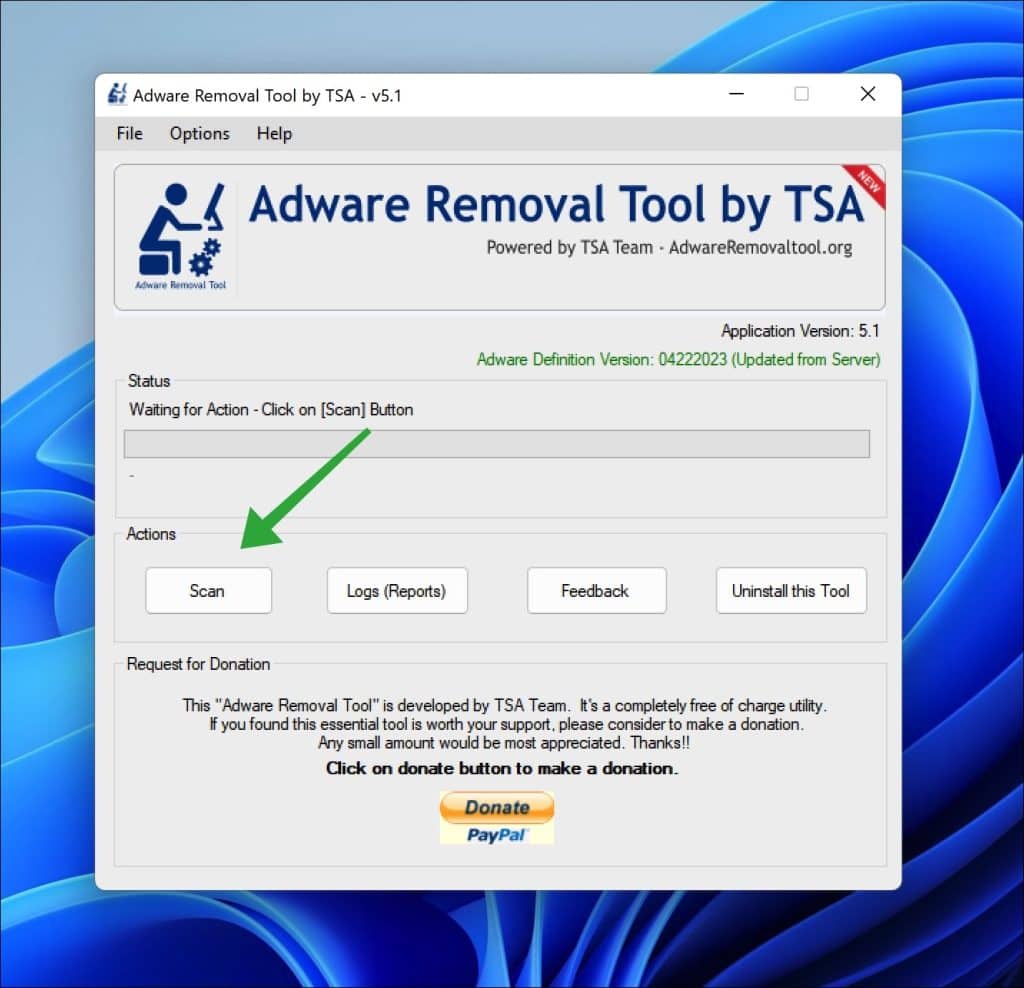
Follow the on-screen instructions to remove detected adware from your PC for free. Next, I advise installing Malwarebytes browser guard to prevent Lps.plarium.com ads.
Malwarebytes browser guard
Malwarebytes Browser Guard is a browser extension. This browser extension is available for the most well-known browsers: Google Chrome, Firefox, and Microsoft Edge. When installed Malwarebytes browser guard, the browser is protected against multiple online attacks. For example, phishing attacks, unwanted websites, malicious websites, and crypto miners.
I recommend installing Malwarebytes browser guard to be better protected against Lps.plarium.com now and in the future.
- Download Malwarebytes browser guard.
- Click to install on the preferred browser.
When browsing online, and you might accidentally visit a malicious website, Malwarebytes browser guard will block the attempt, and you will receive a notice.
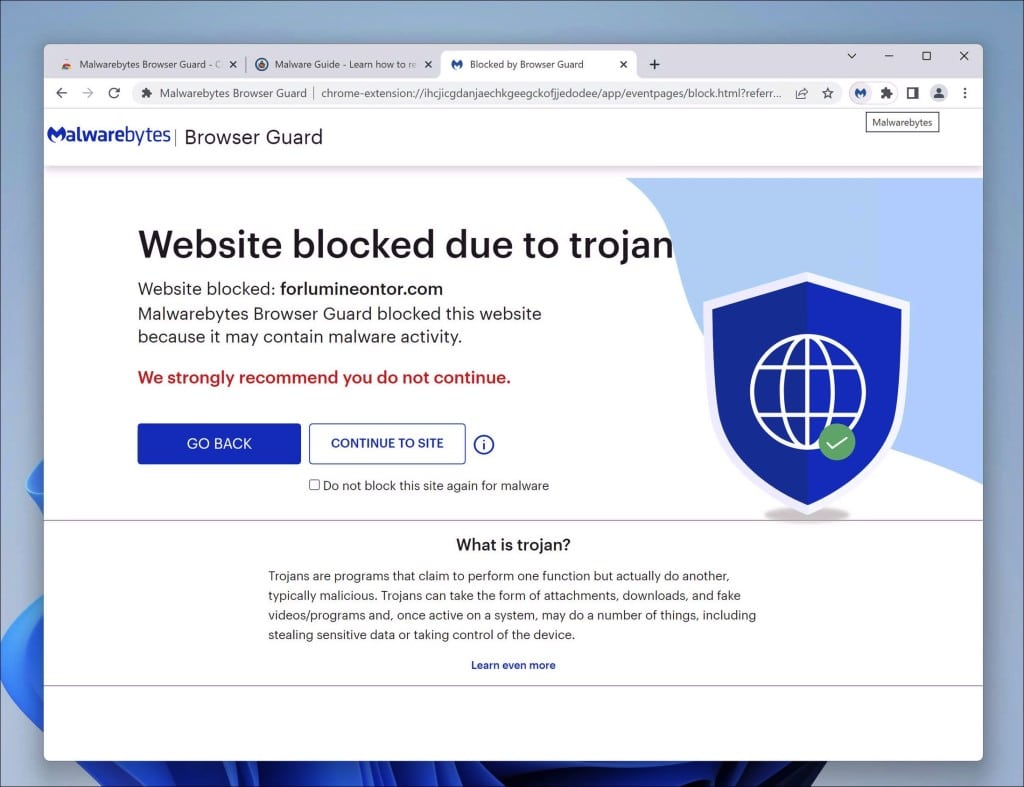
In this guide, you have learned how to remove Lps.plarium.com. Also, you have removed malware from your computer and protected your computer against Lps.plarium.com in the future. Thank you for reading!